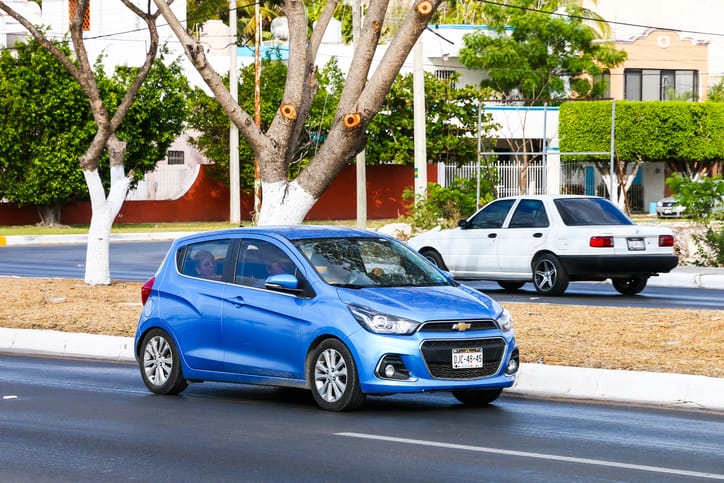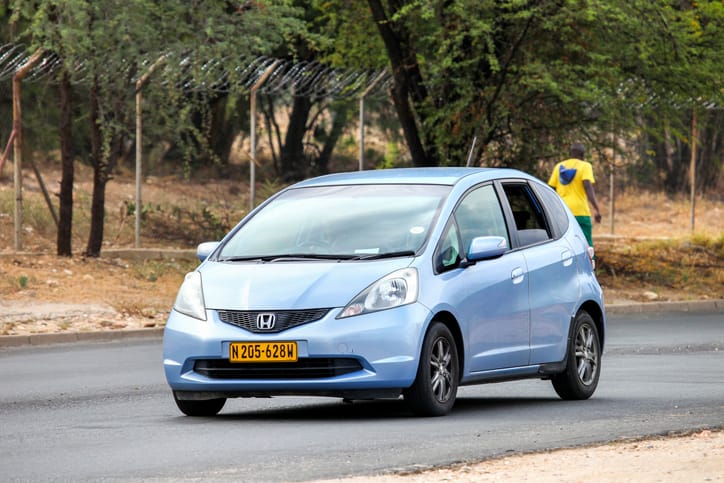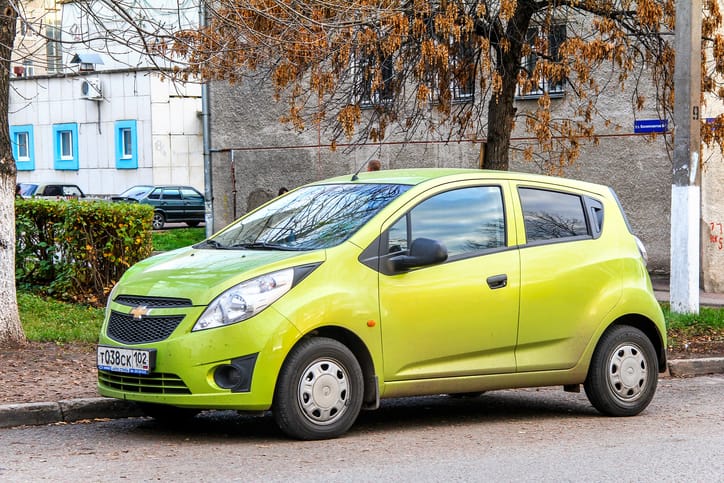City Slickers: Fuel Efficiency Showdown - Honda Fit vs. Chevrolet Spark

In the urban jungle, where stop-and-go traffic reigns supreme, fuel efficiency becomes a top priority for car buyers. Every mile counts when it comes to squeezing the most out of a tank, and compact cars are natural contenders for city driving dominance. Two popular choices are the Honda Fit and the Chevrolet Spark. But which one emerges victorious in the battle for fuel efficiency? Let's delve into the specs, driving styles, and real-world scenarios to determine the champion of city fuel economy.
Under the Hood: Engine Specs and EPA Ratings
The first step is to understand the official fuel economy ratings provided by the Environmental Protection Agency (EPA). These ratings offer a standardized comparison between vehicles.
- Honda Fit: The Fit boasts a 1.5-liter, 4-cylinder engine, churning out 130 horsepower. According to the EPA, the Fit achieves 29 mpg in city driving and 36 mpg on the highway, for a combined rating of 31 mpg.

- Chevrolet Spark: The Spark counters with a smaller 1.4-liter, 4-cylinder engine, generating 98 horsepower. The EPA rates the Spark at 29 mpg in the city and a slightly higher 38 mpg on the highway, for a combined rating of 33 mpg.
On paper, the Spark appears to have a slight edge, especially on highway journeys. However, city driving is our focus, and both contenders achieve an identical 29 mpg city rating.
Beyond the Numbers: Driving Style and Real-World Factors
While EPA ratings provide a baseline, real-world fuel efficiency can vary depending on driving habits and conditions. Here's how your driving style can impact fuel economy:
- Aggressive Acceleration: Jackrabbit starts and hard braking are fuel guzzlers. In city traffic, maintaining a smooth and consistent pace is key.
- Idling: Waiting at red lights or in traffic jams burns unnecessary fuel. Consider short commutes by bike or foot when possible.
- Air Conditioning: Cranking the AC puts a strain on the engine, reducing fuel efficiency. Utilize alternative cooling methods like opening windows for short durations.
Cargo Considerations: Size Matters
While both cars are compact, the Honda Fit offers a slight advantage in cargo space. With the rear seats folded, the Fit provides 52.7 cubic feet of cargo space, compared to the Spark's 31.1 cubic feet. While fuel efficiency isn't directly impacted by cargo weight, a heavier load can contribute to decreased gas mileage. If you frequently carry passengers or cargo, the Fit's extra space might indirectly benefit fuel economy on longer trips by allowing you to avoid multiple car journeys.
The Technology Factor: Modern Features and Efficiency
Modern vehicles come equipped with features that can influence fuel efficiency. Here's what each car offers:
- Honda Fit: The Fit may offer features like Eco Assist (Honda's fuel-saving coaching system) and automatic engine stop-start (on some models) that can potentially improve fuel economy in city driving.
- Chevrolet Spark: The Spark might have a simpler feature set, but it could translate to slightly less weight, potentially leading to a marginal fuel efficiency gain.

Maintenance Matters: Keeping Your Engine Running Smoothly
Regular maintenance is crucial for optimal fuel efficiency. Sticking to the manufacturer's recommended service intervals, including oil changes, air filter replacements, and spark plug tune-ups, can ensure your engine performs at its peak, maximizing fuel economy.
The Verdict: A Split Decision Based on Needs
Deciding between the Fit and the Spark for city driving fuel efficiency depends on your specific needs and priorities. Here's a breakdown:
- Fuel Economy: Both achieve the same 29 mpg city rating. The Spark edges out with a slightly better highway rating, but that might not be as relevant in city driving.
- Cargo Space: The Fit offers significantly more cargo space, which could indirectly benefit fuel economy on longer trips by consolidating cargo.
- Technology: The Fit might have features like Eco Assist that could potentially enhance city fuel efficiency.
- Price: The Spark is generally cheaper than the Fit.
The Thrifty Choice: Chevrolet Spark
If price is your top priority and you primarily drive short city distances, the Spark might be the more economical choice. Its slightly lighter weight and identical city fuel rating make it a compelling option for budget-conscious drivers.
The Versatile Contender: Honda Fit
If you value cargo space, potentially fuel-saving technology features, and a slightly more powerful engine, the Honda Fit might be the better fit (pun intended!). While it might have a slightly higher starting price, the extra cargo space and potential for improved fuel efficiency through features like Eco Assist could balance the equation in the long run.
